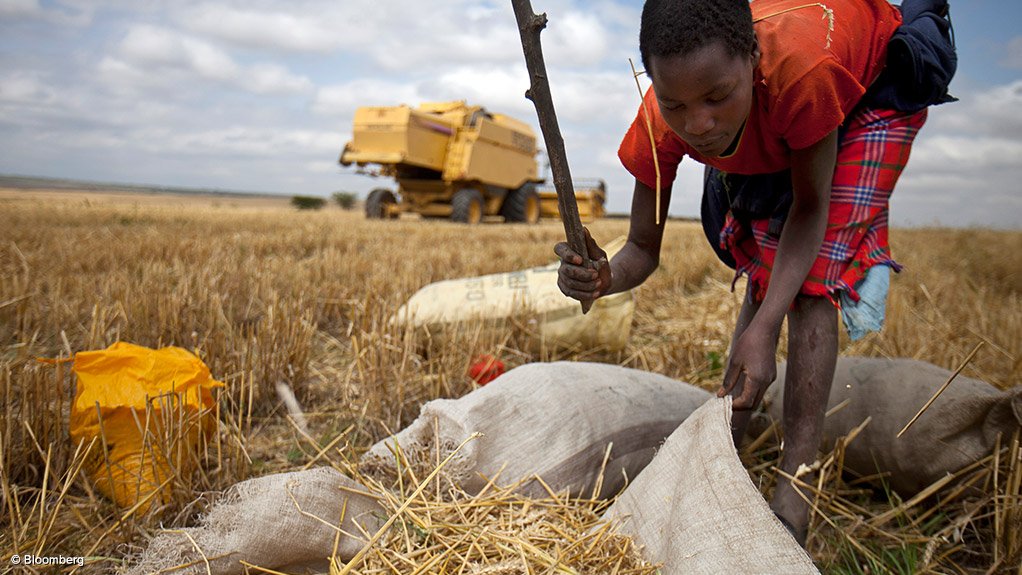AU adopts 48-year African development plan
Endorsing an Afrocentric development approach that aims to achieve the continent’s socioeconomic transformation by 2063, the African Union (AU) has officially adopted Africa’s Agenda 2063 framework document, which is expected to galvanise African States into collaborative, accelerated action.
Unlike previous continent-wide initiatives, Agenda 2063 was developed by Africans rather than external international players in the context of what the AU believed was a “more united and strong” Africa, capable of rallying support around a common agenda.
The union outlined that the new roadmap would look to emphasise the importance of “rekindling a passion for Pan-Africanism, a sense of unity, self-reliance, integration and solidarity, which were a highlight of the triumphs of the twentieth century”.
“This initiative does not seek to replicate the traditional donor–recipient relationship between Africa [and other global powers]…but focuses rather on uniting [African leaders and other African players] into action to solve the continent’s challenges,” Department of International Relations and Cooperation chief director Dave Malcolmson said at a joint seminar organised by the New Partnership for Africa's Development (Nepad), the Institute for Security Studies and the Japan International Cooperation Agency, in Pretoria, on Tuesday.
He added that Agenda 2063 would not replace Nepad, which largely provided a policy framework for Africa’s development, but, rather, Nepad would become the programme’s implementing organisation.
Existing Nepad development programmes would, meanwhile, be absorbed into the overarching Agenda 2063 framework.
The agenda’s technical framework, which was compiled by the AU Commission (AUC) and outlined the plan’s objectives was adopted by the AU executive committee at the twenty-fourth AU summit, in Addis Ababa, Ethiopia, last month.
The committee requested, however, that more clarity be provided by the AUC’s initial ten-year implementation plan, which outlined specific targets, provided national strategies, outlined institutional arrangements and identified potential sources of funding.
AUC Department of Strategic Planning representative and Agenda 2063 technical team expert Dr Kassim Khamis outlined at the summit that the commission had also been requested to explore and prepare concrete actions for the implementation of priority programmes and programmes identified within Agenda 2063.
Moreover, the AU executive committee had directed the commission to intensify the popularisation of the agenda and accelerate the integration of the plan into the respective domestic development plans of AU member States.
While each AU member State should develop a national developmental strategy that was dictated by their respective domestic environment, Khamis said these should be aligned with the 48-year plan.
“This is a continental strategy, which will touch all institutions in all countries at all levels. We [also] want this to be a people’s project, so we need to get business involved and we want to have a yearly forum with business to discuss this,” he added.
Providing a private-sector perspective, Massmart chairperson Kuseni Dlamini noted during a panel discussion on Tuesday that business “must” be at the centre of the agenda’s execution, adding that he was “encouraged” that there had been some private-sector consultation in the early stages of its development.
As part of the agenda, Africa should also look to identify independent international partners that could play a role in the continent’s development, while enhancing its own level of international competitiveness, he advised.
“We can’t forget that, as we’re developing, we’re competing against other countries. We need to elevate the scale of our ambition to become a first-world continent within a generation.
“This can be achieved if we [encourage] a paradigm shift in thinking by our presidents, ministers, business leaders and thinktank leaders,” remarked Dlamini.
The AU executive committee was expected to adopt the revised ten-year implementation plan at the twenty-fifth AU summit, in South Africa, in mid-2015.
Comments
Press Office
Announcements
What's On
Subscribe to improve your user experience...
Option 1 (equivalent of R125 a month):
Receive a weekly copy of Creamer Media's Engineering News & Mining Weekly magazine
(print copy for those in South Africa and e-magazine for those outside of South Africa)
Receive daily email newsletters
Access to full search results
Access archive of magazine back copies
Access to Projects in Progress
Access to ONE Research Report of your choice in PDF format
Option 2 (equivalent of R375 a month):
All benefits from Option 1
PLUS
Access to Creamer Media's Research Channel Africa for ALL Research Reports, in PDF format, on various industrial and mining sectors
including Electricity; Water; Energy Transition; Hydrogen; Roads, Rail and Ports; Coal; Gold; Platinum; Battery Metals; etc.
Already a subscriber?
Forgotten your password?
Receive weekly copy of Creamer Media's Engineering News & Mining Weekly magazine (print copy for those in South Africa and e-magazine for those outside of South Africa)
➕
Recieve daily email newsletters
➕
Access to full search results
➕
Access archive of magazine back copies
➕
Access to Projects in Progress
➕
Access to ONE Research Report of your choice in PDF format
RESEARCH CHANNEL AFRICA
R4500 (equivalent of R375 a month)
SUBSCRIBEAll benefits from Option 1
➕
Access to Creamer Media's Research Channel Africa for ALL Research Reports on various industrial and mining sectors, in PDF format, including on:
Electricity
➕
Water
➕
Energy Transition
➕
Hydrogen
➕
Roads, Rail and Ports
➕
Coal
➕
Gold
➕
Platinum
➕
Battery Metals
➕
etc.
Receive all benefits from Option 1 or Option 2 delivered to numerous people at your company
➕
Multiple User names and Passwords for simultaneous log-ins
➕
Intranet integration access to all in your organisation





















